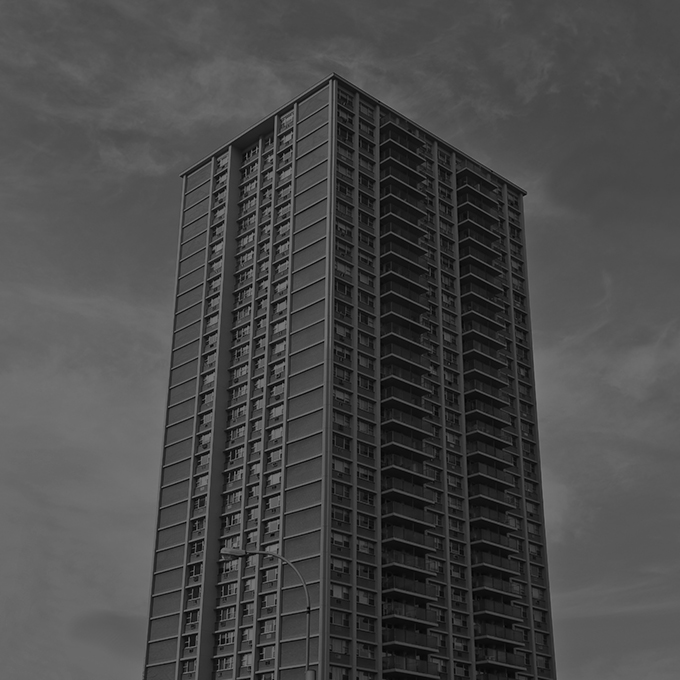GTA RENTS GETTING COVID
RHB Magazine - Huffington Post
With the COVID-19 pandemic shifting where people live and work, the next few years could be tough ones for landlords in Canada’s largest cities. But they could be better for some of the country’s long-struggling secondary cities ― and for renters, who might finally find a good deal on housing after years of soaring prices.
Rents in Toronto and Vancouver have been falling since the early months of the pandemic, and have now clocked some of the largest year-over-year declines in North America.
Rental rates in Canada’s largest cities are cratering. With millions more Canadians working from home, post-secondary students taking online classes and immigration to Canada slowing to a trickle, demand for rental housing has dried up.
Rates in Toronto and Vancouver have been falling since the early months of the pandemic, and have now clocked some of the largest year-over-year declines in North America.
According to U.S. apartment rental site Zumper, and its Canadian sister brand, Padmapper, Vancouver had the second-steepest drop in North American rental rates over the past year, falling 14.1 per cent to $2,750. Only San Francisco ― by most measures the most expensive city on the continent ― saw faster rental rate declines, down 20 per cent in a year, to US$3,800.
Toronto came in third, clocking a 12-per-cent decline in two-bedroom rental rates, to $2,630, while Montreal recorded a 2.8-per-cent decline to $1,750.
As those cities experience an out-migration of residents, smaller, more affordable cities ― especially those near large ones ― are booming. In those places, rents are rising rapidly even amid the pandemic, both in Canada and the U.S.
While rents are falling in Vancouver, they are soaring in the B.C. cities of Abbotsford and Victoria, up around 15 per cent in both. Near Toronto, Barrie and Oshawa have also seen rents spike in the 15-per-cent range. Rents are soaring in Newark, N.J. near New York, and in Fresno and Bakersfield, Calif., north of Los Angeles County.
Canadian cities have led the pack on rental rate increases, according to Padmapper and Zumper data, with Halifax recording the steepest two-bedroom rental rate increase in the U.S. and Canada over the past year, up 15.8 per cent.
But the trend may not be permanent. For one, it’s not clear how many of the people working from home today will do so forever. While some companies, like Twitter, have said they will allow employees to work from home indefinitely, other businesses, such as major international banks, are calling employees back into work.
Some argue the shift out of the city is an acceleration of trends we were seeing before the pandemic. It was, in fact, the case that Toronto and Vancouver were already seeing net out-migration of residents before the pandemic, largely due to high housing costs. Were it not for immigration, these cities’ populations would be shrinking or stagnant.

STUDENT HOUSING LESS THE STUDENT
REMI - Catherine Morrison
Vacancies are rising in major urban centres across Canada due to several factors, including lower immigration, short-term rental conversions, an increase in multi-residential construction, and COVID-induced caution about moving and buying a home. But the lack of students to fill rental units near universities and colleges is another reason for concern.
In Ottawa, a recent study conducted by Carleton University’s Centre of Urban Research and Education (CURE) predicted that an increase in vacancy rate in the city’s rental market would likely be caused by a decrease in student population and tourism. The survey, which continues through the month of October, anticipates Ottawa’s vacancy rate could push as high as 10 per cent as the pandemic surges on.
Maxim Cordeau-Andrews, customer relations and marketing manager for Akelius Montreal Ltd., says there are a “huge number” of mostly younger, undergraduate students who are not returning to classes this fall, leaving many units empty. But on the flipside, he says there is an influx of students pursuing long-term, post-graduate or continuing studies involving research or lab work which could help lessen the blow.
The strategy of offering shorter-term leases is a solution Akelius and other student housing providers believe will help them get through the next wave of COVID, or until universities decide it’s safe for undergraduate students to return to class.
All across Montreal, universities have had to greatly adjust their plans for the fall 2020 semester. McGill University, Concordia University, and Université de Montréal have almost entirely moved to online learning for an indefinite period of time.
At McGill, a number of residences including Douglas Hall, Gardner, Molson and McConnell Hall have been closed. The university has guaranteed all first-year undergraduate students admitted for the 2020/2021 academic year will have a spot in residence, even if travel restrictions or other related issues don’t allow them to be in Montreal in the fall.
Many landlords are offering deals to make renting seem more attractive — from free parking, to one month’s rent free, to deferred payments, to discounted rental rates.
GTA APARTMENT VACANCY +2%
TORONTO STOREYS - Ainsley Smith
Vacancy rates for purpose-built rentals in Toronto have reached a 10-year low, rising over 2% in Q3-2020, while the Greater Toronto Area (GTA) saw rental rates reach 2.4% — or three times higher (0.8%) — than the same time last year, according to Urbanation’s latest rental market results.
According to Urbanation, within the former City of Toronto — which mainly represents the downtown and midtown markets — vacancy rates increased to 2.8% from 0.7% a year ago, during Q3-2020.
Despite the initial COVID-19 restrictions, which halted construction, purpose-built rental development remained elevated in the third quarter compared to previous years, with 13,131 units under construction — down from the recent high of 13,663 units in Q1-2020. However, this is still up from a year ago (11,522 units) and more than double the level from four years ago (6,117 units).
What’s more, a total of 5,276 new rental units are scheduled for completion in the GTA in 2021 — the highest level in more than 25 years and up from 988 units completed in 2020.
While rents were down in some pockets, Urbanation says average rents did increase 1.1% quarter-over-quarter in both the outer 416 and 905 regions, while continuing to fall in the former City of Toronto with an accelerated quarterly decline of 5.0%.
Within the former City of Toronto, the steepest year-over-year declines in average per square foot rents were found in the East Bloor/The Village submarket near U of T and Ryerson University (-16.8%), the Downtown Core (16.0%), the Entertainment District (-15.9%), and CityPlace (-14.3%).
“Toronto is seeing the biggest decline in rental and condo apartment rental rates on average among major municipalities in Canada; this is driven by the rapid decline in downtown condo rents, with many recently completed buildings seeing rates drop by 10% to 15% annually,” noted Ben Myers, president of Bullpen Research & Consulting.
Additionally, what’s interesting to note is that Urbanation found that the reported decline in rents was additional to incentives. Most rental buildings surveyed were offering incentives to attract new tenants, which mainly included one month of free rent, move-in bonuses and, to a lesser extent, two months of free rent.
RECENT APARTMENT SALES
125 Vaughan Road – Toronto – SOLD $7,020,000 / $238,460 per suite / 3.0% Cap Rate
This sale consists of 32 rental apartment suites owned by a private investor in a walk up building just north of St. Clair Avenue West. The 1920's vintage building was in good condition for its age and had no on site parking or balconies. The rents here were extremely low as all of the units were under an affordable housing initiative which ends in 2027. In 2027 the buyer would get the the building back empty and will realize full market rental potential at that time. This property was sold by The Apartment Group with multiple offers and sold to a private investor.
301 Dixon Road – Etobicoke – SOLD $78,500,000 / $348,890 per suite / 3.0% Cap Rate
This sale is a 225 suite high rise rental apartment building in west Toronto sitting on 6 acres. The building dated from the 1960's and was in the Seller's ownership for many years. The building had a brick exterior, balconies, double windows, two elevators and underground parking. The building was in good condition for its age and was fully exposed and sold to Starlight Investments along with 95 Decarie Circle (below).
95 Decarie Circle – Etobicoke – SOLD $9,250,000 / $289,065 per suite / 3.4% Cap Rate
This sale consists of 32 rental townhouse units owned by a private investor and was sold along with 301 Dixon Road above. The building contains 16 two bedrooms and 16 three bedrooms are are all two storey units with basements - brick exterior and flat roofs. The structures were considered to be in average condition for their age (built in 1962) This property was fully marketed and sold to Starlight Investments.
Homestead Portfolio – Ontario – SOLD $200,700,000 / $215,000 per suite / 4.2% Cap Rate
Homestead is a major apartment building owner in the Ontario market and also is an active buyer in this market. They internally decided to sell 1,024 suites located in Hamilton, London and Sarnia. The portfolio consisted of townhouses, mid rise and high rise buildings in those markets. All were well maintained with substantial rental upside and some with additional development potential. This is considered a high caliber offering and the was fully marketed and sold to InterRent International and CAP REIT.
THE APARTMENT GROUP
Together the team has completed over 1,000 transactions and has sold over $5 billion in apartments and development land. Put us to work for you and see the results. NO ONE has sold more buildings then our group. Experience, knowledge and professionalism will insure you get the right deal or the highest price if you are selling.
The Apartment Group is a dedicated team of professionals specializing in the sale of multi-residential investment properties. With over 40 years of combined experience, the team brings together their strengths including strong negotiation and sales skills along with highly technical market analysis and appraisal methods.
We are a boutique Brokerage but have the capabilities of the larger houses without the overhead. We have: an internal database of over 10,500 active apartment and land Buyers; a list of all apartment building owners in the Greater Toronto Area; our web site gets over 50,000 hits a month; we highlight properties for sale through our newsletter which reaches 10,000 investors monthly.
MITCHELL CHANG
President & Owner,
Salesperson
Direct: 416-907-8280
mchang@cfrealty.ca
LORENZO DIGIANFELICE, AACI
Broker of Record, Owner
Direct 416-907-8281
ldigianfelice@cfrealty.ca
JAKE RINGWALD
Salesperson
Direct 416-996-7713
jringwald@cfrealty.ca


